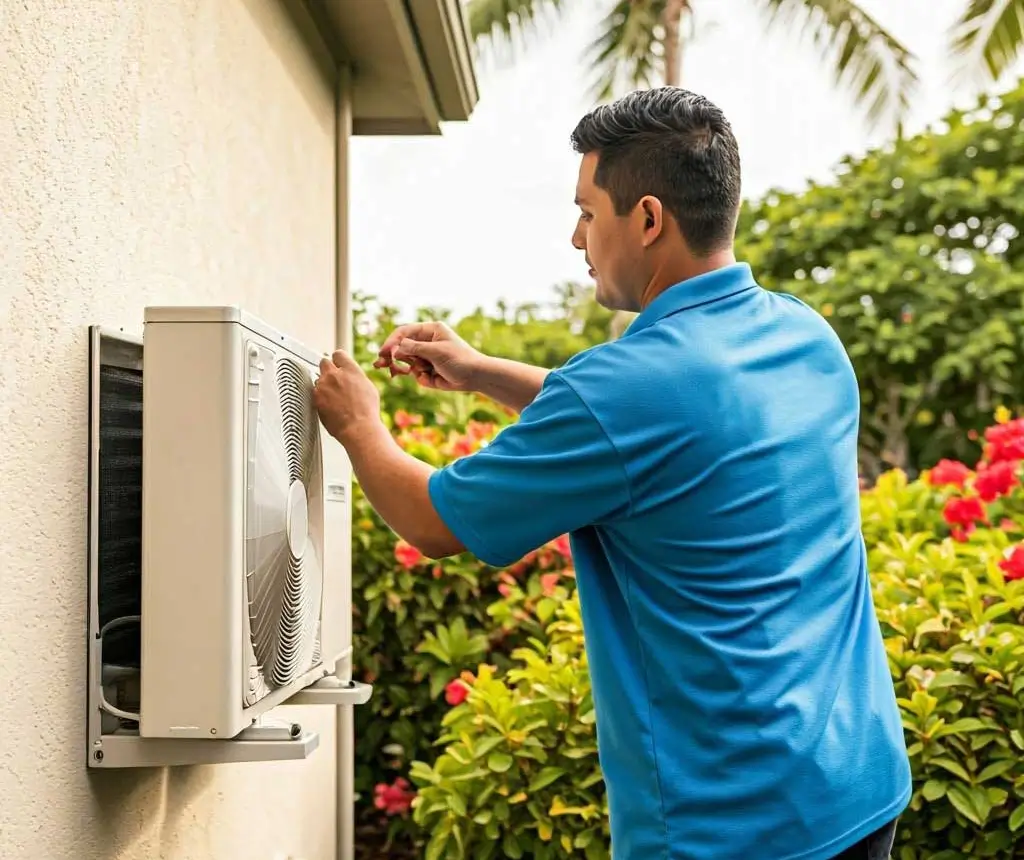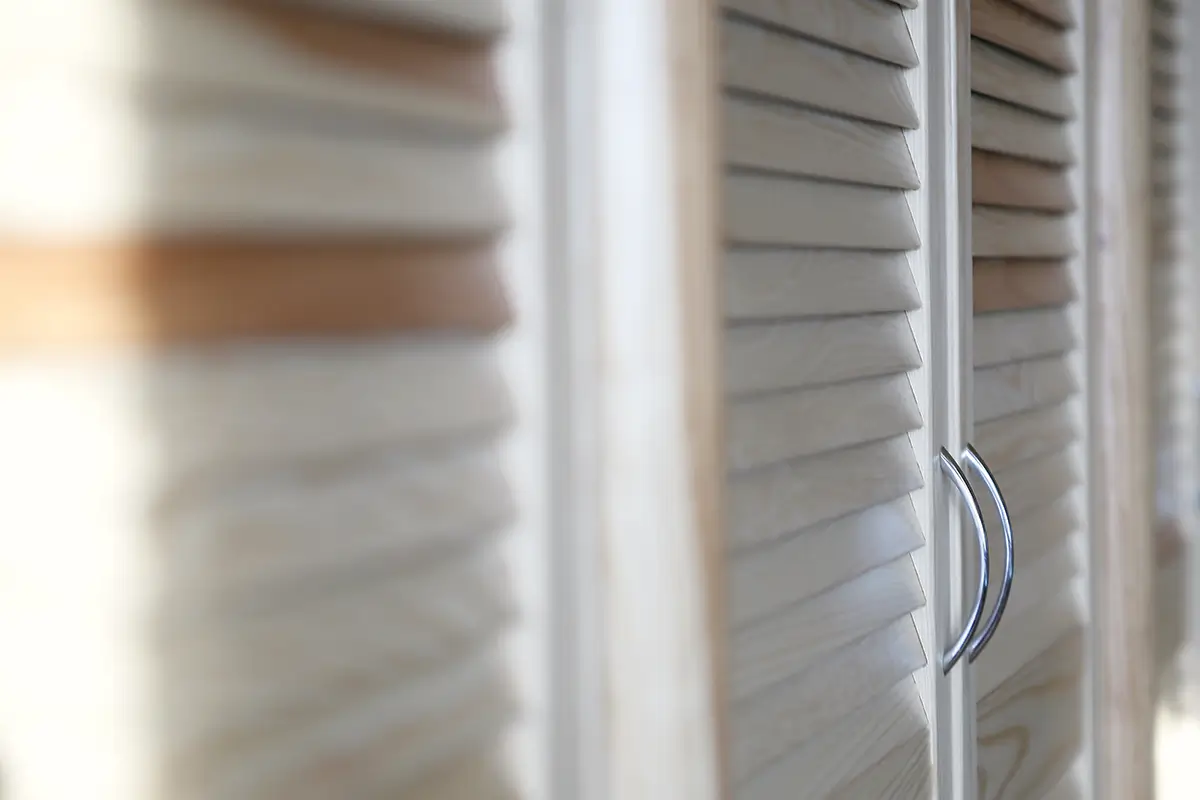Water heaters, though a vital part of our home’s comfort system, often operate unnoticed – until they don’t. The moment a water heater fails, it quickly becomes evident just how essential it is, turning from a silent provider of hot showers and clean dishes into a source of stress.
The longevity of these appliances is a topic of interest to many, particularly when faced with the prospect of cold showers and disrupted routines. Here, we’re going to examine the expected lifespan of water heaters, breaking down the various factors that influence how long they can effectively operate. Our goal is to not only present the typical duration you can expect from your water heater but also to offer insights into maintenance practices and signs of wear that could impact its lifespan.
Join us as we delve into understanding how long water heaters last, from their design and build quality to external factors affecting their performance, to help ensure the enduring functionality of this unsung hero in your home.
Average Lifespan of Water Heaters
When considering the purchase or maintenance of a water heater, one of the most pivotal questions is: “How long can I expect my water heater to last?” Understanding the average lifespan of these essential appliances is crucial for homeowners and renters alike, as it influences decisions about maintenance, budgeting, and eventual replacement.
Generally, the lifespan of a water heater depends significantly on its type. Conventional tank water heaters, the prevailing choice for many households, generally have a lifespan spanning from 8 to 12 years. This range, however, can vary based on factors such as the unit’s design, build quality, and the conditions under which it operates.
Conversely, tankless water heaters, celebrated for their efficiency and compact design, enjoy a lengthier lifespan, often stretching to 20 years or beyond. This prolonged durability stems from their on-demand heating system, which mitigates the strain of continual water heating and storage.
Solar water heaters, another environmentally conscious option gaining traction, exhibit diverse lifespans. Their durability often hinges on factors such as climate, maintenance, and the quality of installation, but on average, they can last around 20 years.
Electric water heaters occupy a middle ground, typically boasting a lifespan ranging from approximately 10 to 15 years. Like their counterparts, their longevity is influenced by factors like usage patterns, maintenance schedule, and the quality of water in your area.
It’s crucial to recognize that these figures represent averages. The actual lifespan of a water heater in your home could be shorter or longer, depending on a myriad of factors, some of which we will explore in later sections of this blog post.
In conclusion, while the average lifespan of water heaters varies depending on the type, most households can expect a period of reliable service that ranges from 8 to 20 years. Being aware of this timeframe is essential for proactive maintenance and planning for future replacements, ensuring that your home remains comfortable and efficient.
Factors Influencing Water Heater Longevity
The lifespan of a water heater isn’t fixed; numerous factors can greatly impact its effective operation. Recognizing these factors is essential for optimizing the longevity of this indispensable appliance. Here’s a list of critical elements that impact water heater lifespan:
Quality of Installation
The quality of installation plays a pivotal role in shaping the longevity of your water heater. A professional installation ensures that the unit is set up correctly from the start, preventing a host of potential issues. Key aspects include proper alignment, secure connections, and adherence to safety standards.
Expert installers understand the intricacies of different models, whether it’s a traditional tank-type or a modern tankless unit, and can optimize the setup for efficiency and durability. Improper installation can result in operational issues, decreased efficiency, and potential safety risks. It’s worth investing in skilled professionals to lay a solid foundation for your water heater’s long-term performance.
Maintenance Frequency
Regular maintenance is essential for prolonging the lifespan of your water heater. This includes routine tasks like flushing the tank to prevent sediment buildup, inspecting and testing the pressure relief valve, and checking for any signs of leaks or corrosion. Following these steps helps uphold the unit’s efficiency and forestall minor issues from evolving into significant repairs.
Additionally, routine check-ups can identify wear and tear early, allowing for timely replacements of parts like anode rods. Homeowners should aim for at least an annual maintenance check by a qualified technician to ensure optimal performance and longevity of their water heater.
Water Hardness
Water hardness plays a significant role in the lifespan of your water heater. In regions with hard water, high mineral content, particularly calcium and magnesium, can lead to the accumulation of sediment in the tank. This sediment build-up acts as an insulator, reducing the efficiency of the heating element and forcing it to work harder, which can speed up wear and tear. Over time, this can also lead to issues like blockages, decreased water heating capacity, and increased energy consumption.
To mitigate these effects, it’s advisable to install a water softener or to regularly flush the tank to remove sediment. Monitoring and controlling water hardness is a vital measure in preserving the well-being and effectiveness of your water heater.
Usage Patterns
The longevity of a water heater is closely linked to its usage patterns. Frequent and heavy usage, typical in larger households or where hot water demand is high, can accelerate the wear and tear on the system. Constant heating cycles and higher water turnover can strain the unit, leading to quicker degradation of its components. Conversely, moderate or infrequent use, as seen in smaller households or vacation homes, can lead to longer life expectancy.
It’s important to choose a water heater that matches your usage requirements – a unit that’s too small for a high-demand household may wear out faster, while an oversized unit for a smaller home can lead to unnecessary energy consumption and stress on the system. Understanding and adapting to your household’s water heating needs is key to maximizing your water heater’s lifespan.
Quality of the Water Heater
The build quality, brand, and model of your water heater significantly impact its longevity. High-quality water heaters, often from reputable brands, are designed with durability in mind. Typically, they incorporate high-quality materials, sturdier construction, and advanced technology capable of enduring the demands of daily usage.
In contrast, lower quality models may cut corners in materials and design, leading to a shorter lifespan and more frequent repairs. Investing in a higher quality water heater can mean fewer issues over time, better energy efficiency, and ultimately, cost savings due to less frequent replacements. It’s worth doing research and investing in a unit that has a strong track record for reliability and customer satisfaction.
Type of Water Heater
Various types of water heaters exhibit differing lifespans, influenced by their distinct designs and operational methods. For instance, tankless water heaters generally boast longer lifespans compared to traditional tank models. They heat water on demand, reducing the stress of constant heating and storage, which can extend their operational years. Solar water heaters, leveraging renewable energy, can also have a long lifespan, although their efficiency depends on factors like climate and proper maintenance.
Electric water heaters, while efficient, may have a shorter lifespan in areas with frequent power surges or unstable electrical supply. Gas water heaters are esteemed for their rapid heating abilities, yet they may necessitate more maintenance owing to their combustion process. Understanding the pros and cons of each type in terms of longevity can guide you in choosing the right water heater for your home.
Environmental Conditions
The surrounding environment where a water heater is installed plays a crucial role in its durability. Units placed in areas with high humidity or dampness are more prone to rust and corrosion, which can significantly shorten their lifespan. Similarly, external factors such as dust, debris, and fluctuating ambient temperatures can affect the unit’s efficiency and wear it down faster.
For instance, if a water heater is located in a garage or basement with insufficient insulation, it may need to work harder to maintain the desired water temperature. This increased workload can put additional strain on the system. Ensuring that the water heater is installed in a well-ventilated, clean, and dry area can help in preserving its condition and extending its service life.
Temperature Settings
The temperature setting on your water heater also plays a role in its longevity. Setting the temperature too high can impose undue stress on the system, accelerating wear and tear. High temperatures can accelerate the buildup of minerals and sediments in the tank and increase the risk of overheating. On the other hand, excessively low temperatures can lead to inefficiency and the potential growth of bacteria in the tank.
The ideal temperature setting for most households is typically around 120-140 degrees Fahrenheit. Maintaining this optimal range can help in ensuring efficient operation, reducing energy consumption, and preserving the water heater’s condition over time. Regularly checking and adjusting the temperature setting as per your household’s needs can contribute significantly to the longevity of the unit.
Timely Repairs
Prompt attention to minor repairs is a key factor in extending the lifespan of a water heater. Neglecting minor issues, like leaks, unusual noises, or fluctuations in water temperature, can escalate into more serious problems over time. For example, a small leak, if ignored, could result in considerable water damage or corrosion.
Similarly, ignoring strange noises could indicate sediment buildup, which can strain the heating element. Regularly addressing these small repairs not only ensures the efficient operation of the water heater but also helps in preventing costly breakdowns and prolonging the unit’s service life.
Ventilation
Proper ventilation is particularly crucial for gas water heaters. These units need adequate air flow to ensure safe and efficient combustion. Poor ventilation can lead to a buildup of harmful gases like carbon monoxide and increase the risk of overheating, which can damage the water heater.
Ensuring that your gas water heater is installed in a well-ventilated area and that the ventilation system is regularly inspected and maintained is essential for the unit’s longevity and for your safety. This factor underscores the importance of professional installation and regular checks, especially for gas-operated appliances.
Quality of Components
The durability of a water heater is also affected by the quality of its components, including anode rods, heating elements, and thermostats. High-quality components are more durable and function more efficiently, which contributes to the overall health of the water heater. For example, a robust anode rod can more effectively prevent corrosion inside the tank, and a high-grade heating element can provide consistent and reliable heating over time.
Regular inspections and prompt replacements of these components as necessary can greatly prolong the lifespan of the water heater. Investing in superior quality parts, though potentially costlier upfront, can lead to long-term savings and reduced frequency of repairs.
By paying attention to these factors, homeowners can proactively take steps to ensure their water heater operates efficiently for an extended period. Regular check-ups and maintenance from professionals like Steve’s Plumbing and AC Services can help identify and mitigate issues that may impact the longevity of water heaters.
Signs of Aging in Water Heaters
Recognizing the signs of aging in your water heater is essential in determining its current state and efficiency. Similar to any regularly utilized home appliance, wear and tear are unavoidable over time. Recognizing these signs of aging can be crucial in proactively addressing issues before they develop into expensive repairs or total system failures.
Here’s a comprehensive list of common indicators that suggest your water heater may be nearing the end of its effective service life:
Reduced Water Temperature
A discernible decrease in water temperature or a notable reduction in the duration of hot water supply serves as a clear indication of an aging water heater. Over time, elements such as the heating elements or thermostats can wear out and become less effective.
Another frequent culprit is sediment buildup in the tank, particularly in regions with hard water. This sediment layer acts as a barrier between the water and the heating element, diminishing efficiency and the heater’s capacity to consistently produce hot water. Regular maintenance can address this issue, but persistent problems may indicate that the water heater is reaching the end of its useful life.
Strange Noises
Unusual sounds coming from your water heater, such as rumbling, popping, or banging noises, often indicate sediment accumulation inside the tank. Over time, minerals from the water can settle at the bottom of the tank, solidifying and creating a sediment layer. When water is heated, this sediment layer causes popping or rumbling sounds due to overheating and the subsequent boiling of water trapped in the sediment.
These noises are not just disturbing but also signal that the water heater is working harder than necessary, leading to increased wear on the tank and the heating elements. Regular flushing of the tank can mitigate this issue, but persistent noise might indicate a deeper problem.
Leaks Around the Unit
The presence of water leaks around your water heater is a significant indicator of its aging process and should not be overlooked. Leaks can manifest due to various reasons, such as corrosion eating through the tank’s walls or cracks developing over time. These issues are often a result of prolonged exposure to minerals and sediments in the water, leading to the gradual deterioration of the tank.
Another common cause of leaks is the wearing out of valves or connections. A leaking water heater not only signifies a potential for water damage in your home but also suggests that the integrity of the tank could be compromised, necessitating immediate attention, potentially even replacement.
Discolored Water
If you observe rusty or murky water flowing from your hot water taps, it could indicate internal corrosion within your water heater tank or rusting in the associated piping. Corrosion can occur when the protective lining inside the tank wears away, allowing the metal to rust, which eventually discolors the water. This issue is particularly prevalent in older tanks or those that have not been regularly maintained.
Discolored water is not just an aesthetic concern; it can indicate a serious deterioration inside your water heater, suggesting that it may be time to consider maintenance or replacement to ensure the safety and quality of your hot water supply.
Frequent Repairs
A water heater that necessitates frequent repairs is a clear indicator that it may be nearing the end of its useful life. As water heaters age, components such as heating elements, thermostats, valves, and gaskets may begin to fail more frequently. While occasional repairs are a normal part of any appliance’s lifespan, a sudden increase in the frequency and severity of these issues is a red flag.
Constant repairs can be not only costly but also a sign that the unit is no longer as reliable as it once was. When the cost and hassle of repeated fixes start to mount, it might be more economical and practical to consider replacing the aging water heater with a new, more efficient model.
Longer Recovery Times
Older water heaters often exhibit longer recovery times, meaning they take more time to reheat water after usage. This decrease in efficiency can stem from several issues. Over the years, heating elements and thermostats can wear out and become less effective, struggling to maintain the desired water temperature.
Another factor could be the buildup of sediment in the tank, which acts as an insulator and prevents efficient heat transfer to the water. These prolonged recovery times not only try your patience but also signify that your water heater is exerting more effort than necessary, resulting in higher energy consumption and additional wear and tear. When your water heater consistently takes longer to deliver hot water, it’s a signal that the unit is losing its efficiency due to age.
Visible Rust or Corrosion
Visible rust or corrosion on your water heater, particularly around the tank or at the inlet and outlet connections, is a strong indication that the unit is aging. Rust is often a precursor to leakage, as it signifies that the metal is deteriorating. This deterioration can be accelerated by factors like moisture in the air or corrosive elements in the water.
Corrosion is not just a surface-level issue; it can compromise the structural integrity of the tank, leading to potential leaks and water damage. Once rust and corrosion become evident, it’s usually a sign that the water heater is nearing the end of its service life and may need to be replaced to prevent further damage and ensure reliable operation.
Inconsistent Heating
Experiencing fluctuations in water temperature or intermittent hot water is a common symptom of an aging water heater. This inconsistency often points to failing components within the unit, such as malfunctioning thermostats, degraded heating elements, or issues with the gas supply (in the case of gas heaters). As these components wear out, they lose their ability to consistently heat water to the set temperature, resulting in variations in water temperature. Inconsistent heating not only affects your daily comfort but also signals that your water heater may be on its last legs. Addressing these issues promptly can prolong the life of the unit, but persistent problems may indicate it’s time for a replacement.
Increased Energy Bills
An unexplained increase in energy bills, despite consistent usage patterns, can be a telltale sign of an aging water heater losing its efficiency. As time passes, components within the water heater can degrade or lose effectiveness due to sediment accumulation, corrosion, or general wear and tear.
This reduced efficiency necessitates the unit to exert more effort and operate for extended periods to heat the same volume of water, resulting in elevated energy usage. If you observe a gradual yet consistent rise in your utility bills, it may indicate that your water heater is no longer functioning as efficiently as before, and it could be time for maintenance or replacement.
Age of the Unit
The age of your water heater is a straightforward yet critical indicator of its potential need for replacement. Typically, tank water heaters have an average lifespan of around 8 to 12 years, whereas tankless models can endure for up to 20 years or more. Regular maintenance can sometimes extend these averages, but as a water heater approaches or surpasses these age ranges, it becomes more prone to issues like efficiency loss, component failure, and leaks.
Being aware of the age of your water heater can assist you in anticipating the necessity for a replacement and circumventing the inconvenience of unforeseen breakdowns. Keeping track of the installation date and considering the average lifespan of the type of water heater you own can guide you in planning for an upgrade at the appropriate time.
Being aware of these signs is more than just an exercise in observation; it’s an important part of responsible homeownership. Comprehending these indicators can empower you to make informed decisions regarding your water heater, guiding you on whether it’s appropriate for routine maintenance, essential repairs, or even contemplating a replacement. Early detection and proactive measures can not only prolong the lifespan of your water heater but also guarantee its safe and efficient operation, sparing you from unexpected disruptions and expenses.
Extending the Life of Your Water Heater
Securing the longevity of your water heater extends beyond merely avoiding the inconvenience of cold showers; it’s also about maximizing the appliance’s efficiency and reducing future expenses. Proactive maintenance and careful usage are key to extending the life of this essential home appliance. Although water heaters are naturally durable, their lifespan can be substantially influenced by the manner in which they are maintained and utilized. In this section, we’ll explore practical and effective strategies to help you get the most out of your water heater, ensuring it serves you well for years to come.
Annual Maintenance Check-Up
Arrange for an annual professional inspection and maintenance service. This encompasses tasks such as examining the pressure relief valve, scrutinizing for any indications of wear or damage, and verifying the proper functionality of all components.
Regular Sediment Flushing
Depending on your area’s water hardness, flush the tank periodically (at least once a year) to remove sediment that can accumulate at the bottom. This step is particularly crucial for tank water heaters.
Install a Water Softener
If you live in an area with hard water, consider installing a water softener. It can significantly reduce mineral buildup in the tank and on heating elements, which is a common cause of efficiency loss and deterioration.
Insulate the Water Heater
Adding insulation around your water heater tank and the pipes can reduce heat loss, thus conserving energy and reducing the strain on the heater.
Adjust the Temperature
Maintain the temperature setting at an optimal level, typically around 120 degrees Fahrenheit. This prevents overheating and mitigates the risk of accelerated wear.
Test the Pressure Relief Valve
Regularly testing the pressure relief valve can ensure it’s in working order, which is crucial for safety and the efficient operation of the unit.
Replace Anode Rods
The anode rod is designed to corrode in place of the tank. Check it every few years (or as recommended by your model) and replace it if it’s significantly worn down.
Check for Leaks and Corrosion Regularly
Keep an eye out for early signs of leaks or corrosion and address them promptly. Early detection can prevent more extensive damage.
Be Mindful of Demand
Avoid overburdening the water heater with excessive hot water usage. Staggering the use of appliances and fixtures that require hot water can reduce strain on the unit.
Consider a Timer
For electric water heaters, installing a timer can allow you to turn off the unit during periods when hot water isn’t needed, such as overnight.
Implementing these measures to maintain your water heater can significantly enhance its performance and lifespan. Regular maintenance and mindful usage are investments in the efficiency and reliability of your home’s hot water system.
By following these guidelines, you can not only extend the lifespan of your water heater but also improve its functionality, ensuring optimal operation. Remember, a well-maintained water heater is not just a source of comfort; it’s also a wise economic choice, reducing the need for frequent repairs or early replacement.
Maximize the Lifespan of Your Water Heater with Steve’s Plumbing and AC Services
Navigating the world of water heater maintenance, repair, and replacement can be daunting, but Steve’s Plumbing and AC Services is here to simplify it for you. We bring a combination of expertise, dependability, and customer-focused service to every aspect of your water heating requirements.
Whether you’re in need of a new water heater, professional installation, or comprehensive maintenance and timely replacements, our team is committed to ensuring that your water heater operates flawlessly.
Choosing Steve’s Plumbing and AC Services means entrusting your home’s hot water needs to seasoned experts who value your comfort and strive for energy efficiency. Our team is adept at tackling any water heater issue with skill and professionalism.
For exceptional water heater services that bring you peace of mind and optimal performance, Steve’s Plumbing and AC Services is your go-to provider. Reach out to Steve’s Plumbing and AC Services at (808) 563-4054 for expert, trustworthy solutions in water heater care. Give your home the gift of enduring comfort and efficiency.










